I'm trying to create a simple recommendation engine using Neo4j and Reco4PHP.
The data model consists of the following nodes and relationship:
(User)-[:HAS_BOUGHT]->(Product {category_id: int} )-[:DESIGNED_BY]->(Designer)
In this system I want to recommend products and boost products with the same designer as the user already bought. To create the recommendations I use one Discovery-class and one Post-Processor class to boost the products. See below. This works, but it is very slow. It takes more than 5 seconds to complete, while the datamodel holds ~1000 products and ~100 designers.
// Disovery class
<?php
namespace App\Reco4PHP\Discovery;
use GraphAware\Common\Cypher\Statement;
use GraphAware\Common\Type\NodeInterface;
use GraphAware\Reco4PHP\Engine\SingleDiscoveryEngine;
class InCategory extends SingleDiscoveryEngine {
protected $categoryId;
public function __construct($categoryId) {
$this->categoryId = $categoryId;
}
/**
* @return string The name of the discovery engine
*/
public function name() {
return 'in_category';
}
/**
* The statement to be executed for finding items to be recommended
*
* @param \GraphAware\Common\Type\NodeInterface $input
* @return \GraphAware\Common\Cypher\Statement
*/
public function discoveryQuery(NodeInterface $input) {
$query = "
MATCH (reco:Card)
WHERE reco.category_id = {category_id}
RETURN reco, 1 as score
";
return Statement::create($query, ['category_id' => $this->categoryId]);
}
}
// Boost shared designers
class RewardSharedDesigners extends RecommendationSetPostProcessor {
public function buildQuery(NodeInterface $input, Recommendations $recommendations)
{
$ids = [];
foreach ($recommendations->getItems() as $recommendation) {
$ids[] = $recommendation->item()->identity();
}
$query = 'UNWIND {ids} as id
MATCH (reco) WHERE id(reco) = id
MATCH (user:User) WHERE id(user) = {userId}
MATCH (user)-[:HAS_BOUGHT]->(product:Product)-[:DESIGNED_BY]->()<-[:DESIGNED_BY]-(reco)
RETURN id, count(product) as sharedDesignedBy';
return Statement::create($query, ['ids' => $ids, 'userId' => $input->identity()]);
}
public function postProcess(Node $input, Recommendation $recommendation, Record $record) {
$recommendation->addScore($this->name(), new SingleScore((int)$record->get('sharedDesignedBy')));
}
public function name() {
return 'reward_shared_designers';
}
}
I'm happy that it works, but if it takes more than 5 seconds to compute it is not useable in a production environment.
To improve the speed I have:
- created indexes in Product:id and Designer:id
- Add node_auto_indexing=true to neo4j.properties.
- Add -Xmx4096m to .neo4j-community.vmoptions But it doesn't really make a difference.
It is normal that these Cypher queries take more than 5 seconds or are there some improvements possible? :)
